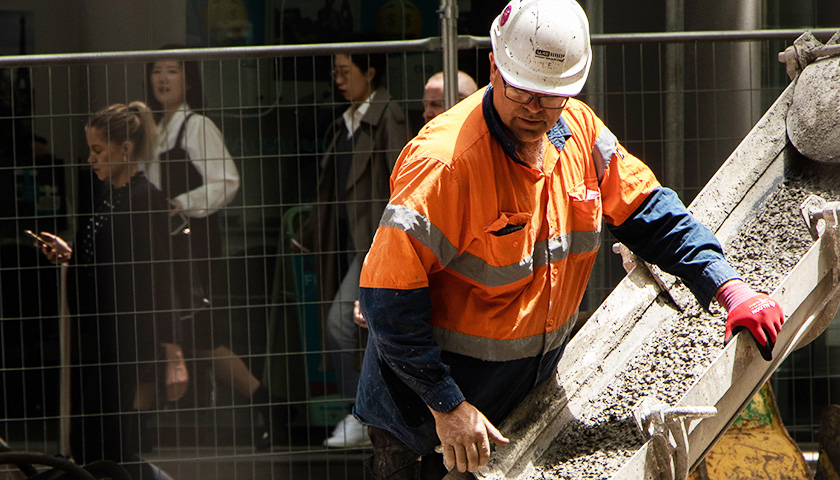Less than a week after receiving a letter from the Goldwater Institute critical of its “prevailing wage” mandate for contractors, the City of Phoenix repealed the ordinance. The Goldwater Institute said there was “a high risk of litigation,” pointing out to the city that the hurriedly passed law violated A.R.S. 34-321, which prohibits prevailing wage laws.
Goldwater Institute staff attorney John Thorpe said in an article after the victory, “Yesterday’s repeal is good news for businesses, their employees, and all taxpayers — and it’s a reminder that Goldwater will never stop fighting to hold government accountable and to defend Americans’ economic freedom from burdensome, counterproductive regulations.”
Thorpe said the detrimental effects of the ordinance included “cutting into businesses’ already-thin margins and making it cost-prohibitive for them to hire entry-level employees, while also forcing taxpayers to pay more and wait longer for public projects to get done.”
The ordinance required contractors to pay their employees salaries per the U.S. Department of Labor’s determined wage for the region.
A.R.S. 34-321(B) states, “Agencies and political subdivisions of this state shall not by regulation, ordinance or in any other manner require public works contracts to contain a provision requiring the wages paid by the contractor or any subcontractor to be not less than the prevailing rate of wages for work of a similar nature in the state or political subdivision where the project is located.”
The Goldwater Institute’s letter was sent on behalf of the Associated Minority Contractors of Arizona and Arizona Builders Alliance. Thorpe and Ricardo Carlo, president of the Associated Minority Contractors of Arizona, said in an op-ed that prevailing wages “hurt immigrants, younger workers, small businesses, and women- and veteran-owned businesses.” Carlo said his organization “heard from many of our members that if bidding on city projects means taking on all these burdens, they’ll have no choice but to stop bidding on those projects altogether.”
The Phoenix City Council passed the ordinance 6-3 last month, “[p]roviding virtually no opportunity for public input or scrutiny,” the Goldwater Institute said. The three progressive councilmembers, Carlos Garcia (District 8), Laura Pastor (District 4), and Betty Guardado (District 5), called a last-minute meeting, only letting the other members know about the vote a day in advance. The city’s attorney said during the meeting that her legal team had not had an opportunity to review the draft ordinance and “there might be some legal issues” with it.” The council knew in 2021 that the ordinance was likely illegal, rejecting it due to legal concerns.
There was bipartisan opposition to the ordinance. The Phoenix Chamber of Commerce sent the city a warning letter, and State Senator Catherine Miranda (D-Phoenix) filed a complaint about the city’s ordinance with Attorney General Kris Mayes. Democratic Mayor Kate Gallego, who voted against the ordinance, called it “a terrible way to do public policy.”
Arizona Chamber of Commerce & Industry President and CEO Danny Seiden sent a letter to the city after it passed the ordinance. “It was clear in the meeting the proposed ordinance had not gone through the standard review by your own legal counsel, nor were any stakeholders consulted in the process,” he said. “In light of the Council’s apparent approval of the ordinance, I write again to remind you that the ordinance is an ultra vires action, that subjects the City to litigation and ultimately attorneys’ fees awards to any prevailing parties.”
A study by the Congressional Budget Office (CBO) in 2016 found that a prevailing wage mandate “distorts the market for construction workers.” The CBO stated, “In that situation, federally funded or federally assisted construction projects are likely to use more capital and less labor than they otherwise would, thus reducing the employment of construction workers.” The federal government and numerous states require contractors to pay a prevailing wage.
The Terner Center for Housing Innovation at UC Berkeley conducted a study in 2020 that revealed that prevailing wage requirements increased the cost of construction by 13% or $50,000 per unit. Chamber Business News said the ordinance could “cost the city an estimated $93 million” and require the city to “pay workers up to 30% more than what the city budgeted for on construction projects that cost over $250,000.” City Manager Jeff Barton admitted that prevailing wages might increase project costs by $93 million.
State Senator Anna Hernandez (D-Phoenix) tweeted that Democrats may retaliate against Gallego for not supporting the ordinance. “At what point does the Democratic Party start looking at censure of @MayorGallego for her unwillingness to uphold democratic values?” she tweeted. “We have seen that when it comes to housing and prevailing wages she will not be the leader the working families of Phoenix needs her to be.”
The ordinance is likely to reappear again in a new form, however. The council voted 7-2 to have staff research the issue and propose a revised ordinance by the end of the year. Council Members Ann O’Brien and Jim Waring voted no.
Tempe City Council is also considering a similar prevailing wage ordinance, and Tempe Councilmember Randy Keating did not seem swayed by the backlash in Phoenix. He told The Arizona Republic, “We’re not going to make policy decisions based on what’s happening in Phoenix.”
– – –
Rachel Alexander is a reporter at The Arizona Sun Times and The Star News Network. Follow Rachel on Twitter. Email tips to [email protected].
Photo “Construction Worker” by Mitchell Luo.







